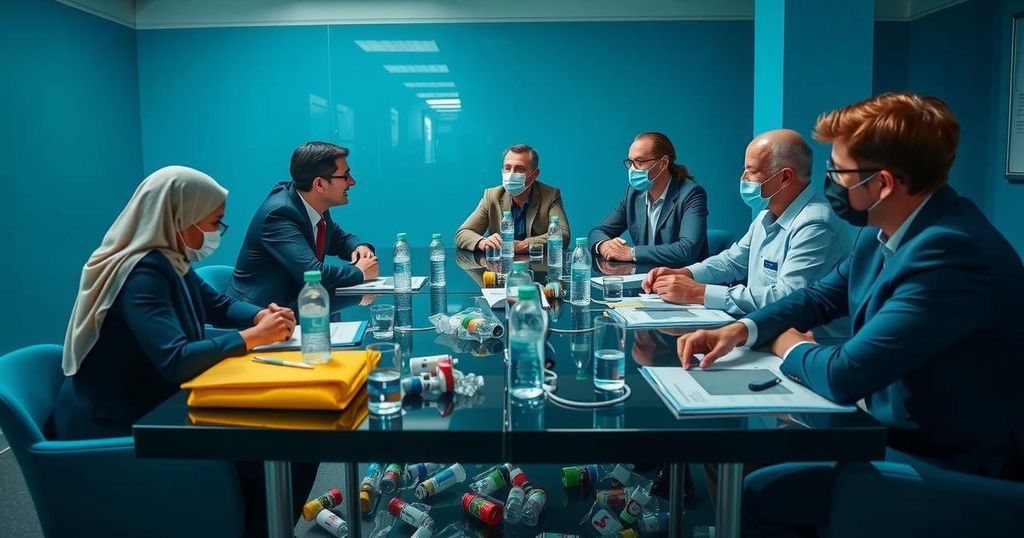Negotiators convened in Busan, South Korea, face significant divisions as they pursue the world’s first treaty on plastic pollution. While there is a shared recognition of the issue, disagreements arise over key components like production limits and funding. The meeting follows tensions from COP29 climate discussions, highlighting challenges in reaching a cohesive and ambitious agreement to combat plastic pollution globally.
Negotiators gathered in Busan, South Korea for the final round of discussions regarding an international treaty aimed at addressing the rampant issue of plastic pollution. Opening remarks underscored the significant divisions among delegates, especially following the recent COP29 climate talks in Baku, which concluded with insufficient commitments according to developing nations. The chair of the meeting, Ecuadorian diplomat Luis Vayas Valdivieso, emphasized the urgency of the situation, stating it is about humanity’s response to an existential challenge.
Despite widespread agreement on the seriousness of plastic pollution, differences emerge over the treaty’s parameters, specifically concerning limits on plastic production, potential bans on harmful chemicals, and funding mechanisms. This contentious atmosphere has hindered past negotiations, leading to a lengthy and conflicting draft document exceeding 70 pages. Valdivieso’s streamlined proposal, intended to incorporate diverse viewpoints and accelerate discussions, met with immediate resistance from nations including Russia and India.
Countries aligned with the High Ambition Coalition stress the necessity for a comprehensive treatment of plastic throughout its lifecycle, advocating for reductions in production, innovative product designs for reusability, and advancements in waste management systems. Conversely, other nations, predominantly oil producers like Saudi Arabia and Russia, favor a narrow focus primarily on waste issues. This divergence in priorities represents a broader conflict related to the environmental implications of plastic, as production is projected to triple by 2060, generating significant emissions linked to fossil fuels.
In the early hours of negotiations, progress was made towards discussing Valdivieso’s document, albeit concerns remain regarding the potential compromise on treaty ambition to secure agreement before the week’s end. Environmental advocates fear that pressure to finalize an accord may dilute its effectiveness. Key support from the United States and China is crucial, although uncertainties arise as the political landscape shifts in Washington. UN Environment Programme officials encourage patience, citing that substantial international agreements, such as the Paris Accord, require time to finalize effective and measurable goals.
Plastic pollution is an escalating global crisis affecting land, waterways, and oceans, with significant economic and health ramifications. The international community recognizes the proliferation of plastic waste as a pressing issue, necessitating cooperation to devise solutions. In 2019, approximately 460 million tons of plastic were produced, a figure that is forecasted to rise further. Anticipated treaty negotiations represent an attempt to unite countries in a concerted effort to tackle this pervasive threat to our environment and health.
In summary, the negotiations in Busan embody the complexities of creating an international treaty addressing plastic pollution. Diverging perspectives among nations hinder consensus, particularly concerning production caps and funding strategies. While initial steps toward constructive dialogue have emerged, the overarching challenge remains the establishment of an effective agreement that meets the urgency of the plastic pollution crisis. As the week progresses, the support from significant global players and commitment to ambitious targets will be pivotal for success.
Original Source: www.seychellesnewsagency.com







